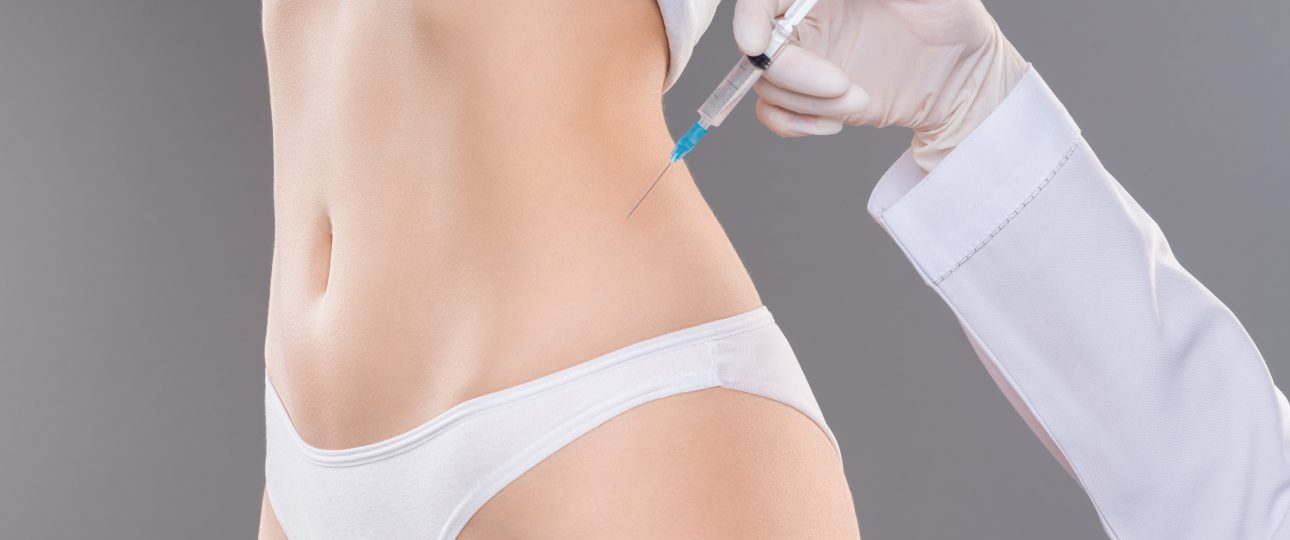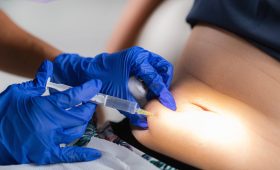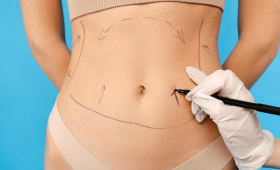What is the Fundamental Difference Between Liposuction and Bariatric Surgery?
Liposuction is a body contouring procedure aimed at removing localized fat deposits and is not considered a weight loss method. It is generally suitable for individuals who are close to their ideal weight but have stubborn fat pockets that they cannot eliminate with diet and exercise.
Bariatric surgery (e.g., sleeve gastrectomy or gastric bypass) are procedures aimed at achieving permanent weight loss in individuals who are overweight or obese and have obesity-related health problems. These surgeries are not just aesthetic; they are also a treatment method for solving a serious health issue by reducing stomach volume or decreasing nutrient absorption.
Which Procedure is More Suitable for Me?
The answer to this question depends on the individual’s current health status, body mass index (BMI), weight loss goals, and overall expectations. If your overall body weight is within the normal range or you are slightly overweight and you only want to get rid of fat in specific areas, liposuction may be more suitable for you. However, if your BMI is over 35, or if your BMI is between 30-35 with additional health problems related to obesity such as diabetes or high blood pressure, bariatric surgery can offer a more effective and permanent solution. You should make the most accurate decision by consulting a healthcare professional.
What is Liposuction Used For?
Liposuction targets stubborn fat deposits in specific areas of the body that cannot be removed through diet and exercise. It is used to slim down fat in areas like the abdomen, waist, back, legs, arms, chin, and hips, giving the body a more contoured and aesthetic appearance. It is not a weight loss tool; it is more of a body shaping and slimming method.
The results obtained with liposuction are generally permanent if a healthy lifestyle is maintained, and it helps define the person’s body lines. Therefore, it is very important for the patient to be at their ideal weight both before and after the surgery.
When is Bariatric Surgery (Sleeve Gastrectomy, Gastric Bypass) Necessary?
Bariatric surgery is performed to reduce the health risks associated with being overweight, in situations where methods like diet and exercise have proven insufficient. These operations are generally recommended for individuals with a BMI of 40 or higher, or a BMI between 35-40 with serious obesity-related health problems (such as type 2 diabetes, sleep apnea, high blood pressure). Bariatric surgery improves the quality of life and helps in the recovery from diseases caused by obesity. It provides a long-term solution, helping patients reach and maintain a healthy weight.
Why are These Procedures Preferred in Turkey?
Turkey is a leading country in health tourism and is frequently chosen for these operations. The most important reasons for this preference include the presence of hospitals with modern technology, high-quality services provided by expert and experienced surgeons, and more affordable prices compared to Europe and North America. Furthermore, in Turkey, both liposuction and bariatric surgery are offered in comprehensive packages. These packages often include accommodation, transfers, and post-operative follow-up services, making the process easier for patients.
How Much Do Liposuction and Bariatric Surgery Cost in Turkey?
The costs of surgical procedures in Turkey vary depending on many factors. Liposuction prices change according to the number of areas from which fat will be removed and the volume of the procedure, while bariatric surgery prices differ according to the type of operation chosen (sleeve gastrectomy, gastric bypass, etc.). However, in general, Turkey offers much more affordable prices compared to Western countries. These affordable prices do not mean a compromise on the quality of the operation. Thanks to a competitive market, foreign exchange rate advantages, and lower general operating costs, patients can receive high-standard service at more economical prices.
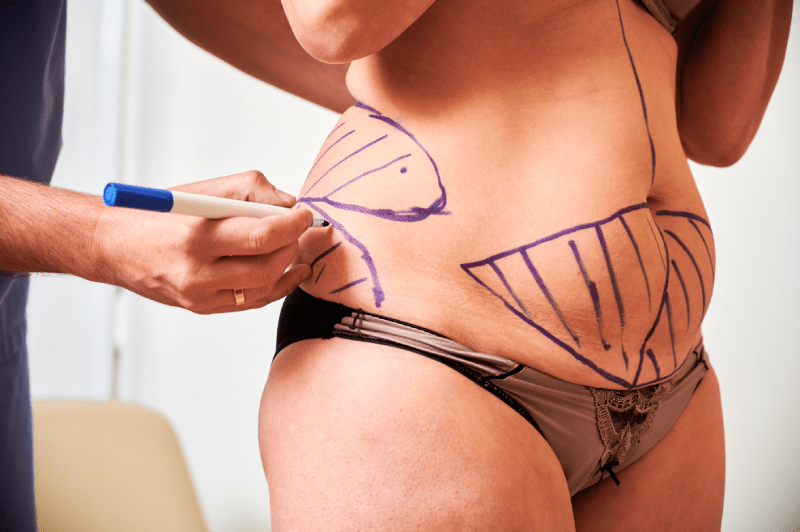
Is Liposuction a Permanent Solution?
The fat cells removed from the body with liposuction are permanently eliminated and do not return. However, if a healthy lifestyle is not maintained after the procedure, the remaining fat cells can grow and new fat deposits can form. Therefore, regular exercise and a balanced diet are extremely important to maintain the aesthetic appearance obtained after liposuction. Liposuction is not a weight loss method, but a body shaping procedure. Therefore, maintaining weight after the operation plays a critical role in the permanence of the result.
Is it Possible to Regain Weight After Bariatric Surgery?
While bariatric surgery is a powerful tool for weight loss, these surgeries are not a magic solution on their own. The sustainability of weight loss is strictly tied to post-operative lifestyle changes. If the patient does not follow the advice of their doctor and dietitian, consumes high-calorie and unhealthy foods, or fails to maintain portion control, unfortunately, weight regain is possible. Therefore, the patient should seek psychological support and adopt healthy eating and exercise habits that will last a lifetime.
What are the Risks Involved in Both Procedures?
As with any surgical procedure, both liposuction and bariatric surgery carry certain risks. The most common risks with liposuction include bruising, swelling, infection, and skin irregularities. Bariatric surgery, being a larger and more extensive operation, carries more serious risks such as bleeding, infection, vitamin deficiencies, and, albeit rarely, embolism (blood clots). To minimize these risks, the patient must undergo a detailed health check before the surgery, and the operation must be performed by an experienced surgeon in a fully equipped hospital.
What is the Pre-Operative Preparation Process Like?
The preparation process for both operations begins with various tests and examinations to evaluate the patient’s overall health. Before liposuction, the surgeon performs an evaluation to understand the patient’s expectations and goals. Before bariatric surgery, the process is more comprehensive and is carried out by a multidisciplinary team (surgeon, dietitian, psychologist, internal medicine specialist). The patient undergoes blood tests, endoscopy, and other necessary examinations, and receives nutritional and psychological counseling. This preparation process is vital for the safe performance of the operation.
What is the Post-Operative Recovery Period?
Recovery times vary depending on the type and extent of the procedure. After liposuction, patients can generally return to their daily activities within a few days, but full recovery and the final result may take a few weeks or months to become visible. Wearing a special compression garment is recommended during this period. Recovery after bariatric surgery is longer, and patients may need to stay in the hospital for a while. The full recovery process can take a few weeks, but the patient can start light activities like walking from the first few days. The weight loss process continues for a long time after the surgery.
How Much Fat Can Be Removed with Liposuction?
The amount of fat that can be removed with liposuction is limited by the patient’s health status and safety guidelines for the operation. Generally, removing up to 4-5 liters of fat in one session is considered safe. Removing more fat can pose health risks to the patient. Since liposuction is not a weight loss method, the surgeon’s main goal is to shape the body proportionally. Therefore, the patient’s expectations must be realistic, and they should have a detailed discussion with the surgeon about this matter before the surgery.
How Much Weight is Lost After Bariatric Surgery?
Weight loss after bariatric surgery varies greatly depending on the type of surgery, the patient’s starting weight, their adherence to lifestyle changes, and their overall health status. Patients who undergo sleeve gastrectomy are generally expected to lose 60-70% of their excess weight within the first year. For gastric bypass, this rate can be as high as 70-80%. Weight loss is rapid in the first few months after the surgery and then slows down as the patient approaches their ideal weight. Regular follow-ups with a doctor and dietitian are very important during this process.
Is the Type of Anesthesia the Same for Both Procedures?
Liposuction is generally performed under general anesthesia, but local anesthesia can also be used for some small areas. This is to ensure the patient’s comfort and to guarantee they do not feel pain during the operation. Bariatric surgery, being a more extensive operation, is always performed under general anesthesia. General anesthesia ensures that the patient is completely unconscious and pain-free during the surgery. In both cases, the anesthesiologist determines the most suitable anesthesia method by considering the patient’s overall health status.
Is a Post-Operative Diet and Exercise Program Important?
Diet and exercise programs are vital for achieving permanent and successful results after both liposuction and bariatric surgery. After liposuction, regular exercise and a balanced diet are essential to maintain the body shape. After bariatric surgery, patients must follow a special diet plan to adapt to their new, smaller stomachs. This plan starts with liquid foods and gradually transitions to solid foods. Physical activity also supports weight loss and improves overall health.
How Reliable are Hospitals and Doctors in Turkey?
Turkey has a worldwide reputation in the field of health tourism, and many hospitals have international accreditations. Turkish surgeons have extensive experience in liposuction and bariatric surgery and have been trained to international standards. Using the latest technological equipment, they provide safe and effective services to their patients. Therefore, hospitals and doctors in Turkey are considered a very reliable option for these types of operations. The important thing is to choose the right hospital and surgeon by doing detailed research before the operation.
What are the Possible Post-Operative Complications?
Both operations have potential complications. Common complications of liposuction include infection, bleeding, skin irregularities, bruising, and numbness. The risks in bariatric surgery are more serious and can include leakage, bleeding, vitamin deficiencies, and, though rare, blood clot formation. It is important to get detailed information about all possible risks and complications from your surgeon before any surgery. It is also important to have open lines of communication for a quick intervention in case of a problem after the surgery.
How Does the Process Work for Patients Coming from Abroad?
The process for patients coming to Turkey for surgery is generally well-planned. The first step is online consultation sessions between the patient and the surgeon. In these sessions, the patient’s condition is evaluated, and a surgery plan is created. Subsequently, the patient’s travel and accommodation arrangements are made. After arriving in Turkey for the final pre-operative checks, they are admitted to the hospital. After the operation, they are asked to stay in Turkey for a short period for their final check-ups by the doctor before returning to their home country. This process is usually coordinated by the hospital.
Can Liposuction Be Performed More Than Once?
Yes, liposuction can be performed again on the same area, but this usually happens when the results of the first operation are insufficient or if the patient regains weight. Re-performing liposuction on the same area can be more challenging due to scar tissue from the previous operation, and the results may not be as impressive as the first time. Therefore, it is of great importance for patients to stick to a healthy lifestyle to maintain the result obtained after liposuction. You should discuss this in detail with your surgeon to avoid the need for a second liposuction.
What Criteria Are Required for Bariatric Surgery?
The main criterion for bariatric surgery is body mass index (BMI). Generally, individuals with a BMI of 40 or higher, or a BMI between 35-40 with serious obesity-related health problems (diabetes, high blood pressure, sleep apnea, etc.), are accepted as candidates. Additionally, candidates are expected to have tried and failed with previous weight loss methods such as diet and exercise. One of the most important criteria for the operation is that the patient has the psychological and mental maturity to adapt to the lifestyle changes after the surgery.
How Does Body Shape Change After Liposuction?
Liposuction reduces localized fat deposits, giving the body a smoother and more proportional appearance. As the post-operative swelling subsides, the slimming and shape begin to become more defined. For example, when fat is removed from the abdomen, the waistline becomes more distinct, and a flatter stomach can be achieved. Arms and legs can appear slimmer. Liposuction is an effective method for reshaping the body’s overall contours and creating a more aesthetic silhouette. The final results fully emerge within a few months after the surgery.
What are the Changes in the Body After Bariatric Surgery?
Bariatric surgery leads to dramatic changes in the body as it results in significant weight loss. As weight is lost, excess skin may sag, which can later be corrected with cosmetic surgeries (e.g., tummy tuck or arm lift). The body shape slims down, facial features become more defined, and overall health improves. This operation not only improves the external appearance but also increases the person’s mobility, energy levels, and self-confidence. During this process, the patient undergoes both a physical and psychological transformation.
Do Scars Remain on the Body After Surgery?
Liposuction is generally performed with very small incisions, so the scars are minimal and become almost unnoticeable over time. The surgeon usually places the incisions in natural body creases or hidden areas to minimize the visibility of the scars. In bariatric surgery, scars of varying sizes may remain depending on the type of surgery. When laparoscopic methods (closed surgery) are used, the scars are generally smaller and less noticeable. The care and healing of the scars depend on the individual’s skin type and the attention paid to post-operative care.
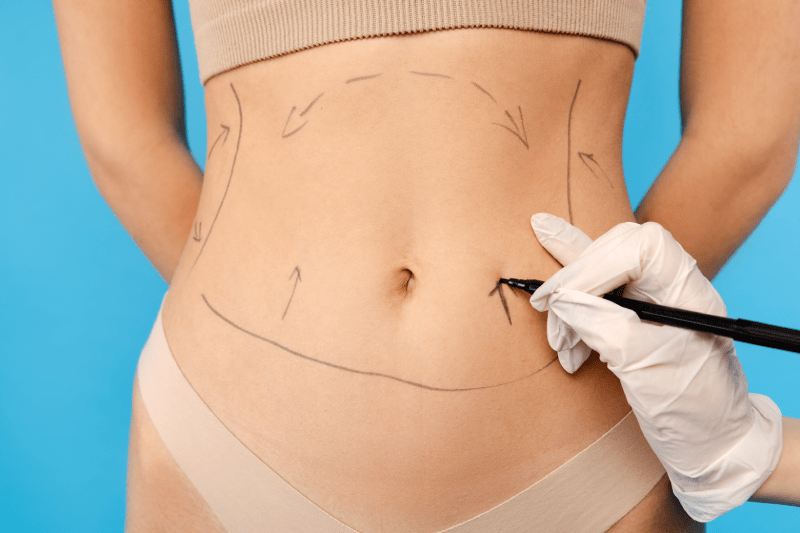
Can the Two Procedures Be Performed Together?
Whether these two procedures can be performed together depends on the patient’s overall health status and the surgeon’s decision. Liposuction is generally a second-stage operation performed after significant weight loss from bariatric surgery to correct any remaining localized fat and body shape irregularities. Since bariatric surgery is already a major and risky operation on its own, combining it with liposuction in the same session is generally not recommended. Your surgeon will evaluate you in detail to determine the safest and most effective treatment plan.
What Age Group are These Operations Suitable for?
Liposuction is generally suitable for individuals over 18 years of age who are close to their ideal weight and are in good overall health. Bariatric surgery is generally a candidate for people between the ages of 18-65 who meet specific BMI criteria and other health conditions. However, age alone is not the only criterion for both operations. The patient’s overall health status, chronic illnesses, and psychological readiness for the operation are also taken into consideration. Special cases for younger or older patients will be evaluated by the surgeon.
Is it Safe to Have Surgery in Turkey?
Turkey is a country that has gained many years of experience in health tourism and has adopted high standards in this field. Hospitals provide services at international standards, and many surgeons use globally recognized surgical techniques and technologies. A meticulous process applied before, during, and after the surgery ensures a safe environment for patients. Of course, as with any surgery, risks always exist. However, doing good research and choosing hospitals with JCI or similar international accreditations increases safety.
How are Post-Operative Check-ups Done?
Post-operative check-ups are of critical importance for maintaining success after both liposuction and bariatric surgery. After liposuction, your doctor may ask you to come for follow-up appointments within a few days or weeks. During these check-ups, wound healing and swelling are monitored. After bariatric surgery, check-ups are more frequent and long-term. Vitamin and mineral levels and overall health status are checked frequently in the first few months and then at longer intervals. For patients coming from abroad, these check-ups are also supported by online video calls.
Do Insurance Policies Cover These Surgeries?
Whether insurance companies cover liposuction and bariatric surgery depends on the type of policy, the country, and the patient’s condition. Liposuction is generally considered a cosmetic procedure and is not covered by insurance. Bariatric surgery, however, may be covered by insurance in cases where obesity is a serious health problem and the surgery helps prevent life-threatening diseases. However, insurance companies usually require the patient to meet certain criteria (such as BMI and past weight loss efforts). For the most accurate information on insurance coverage, you should contact the insurance company.
What are the Physical Differences Between Liposuction and Bariatric Surgery?
Physically, liposuction is a body contouring procedure, and no significant weight loss is seen after the surgery. The body lines become more defined and slimming is achieved, but the overall body weight does not change. Bariatric surgery, on the other hand, leads to a large amount of weight loss by restricting food intake and absorption by reducing the volume of the stomach or changing the intestines. The purpose of this surgery is not only to improve appearance but also to solve the physical health problems caused by obesity. Therefore, the physical effect and results are completely different between the two procedures.
Is Psychological Support Part of the Process?
Psychological support is of vital importance, especially for bariatric surgery. Before the surgery, patients are expected to be psychologically ready for the operation and demonstrate that they can adapt to the post-operative lifestyle changes. After the surgery, patients may need psychological support to cope with their new body, adopt new eating habits, and manage emotional eating issues. Psychological support can also be beneficial for liposuction, as it is important for patients to have realistic expectations and to be psychologically prepared to feel better about themselves after the operation.
